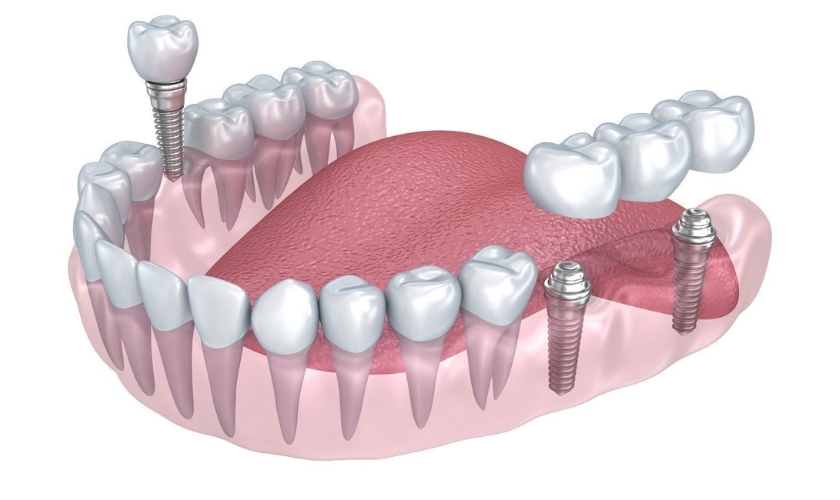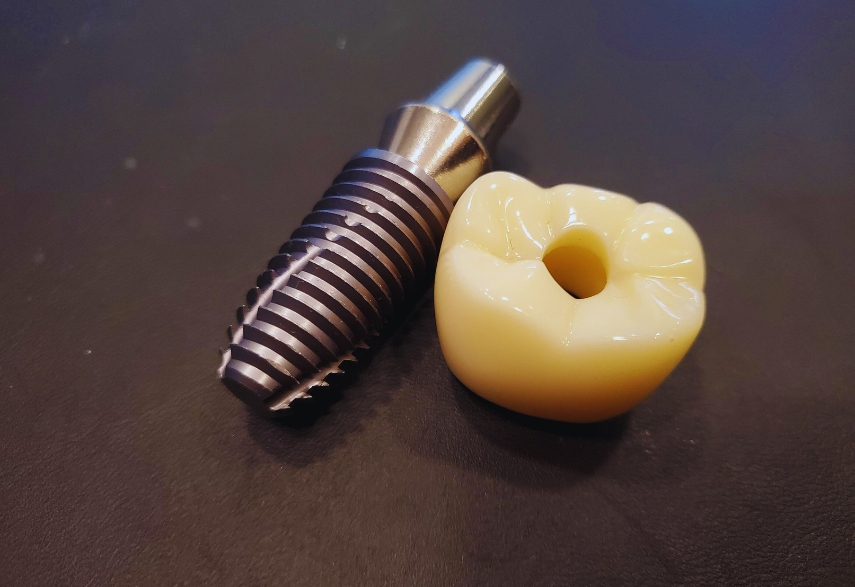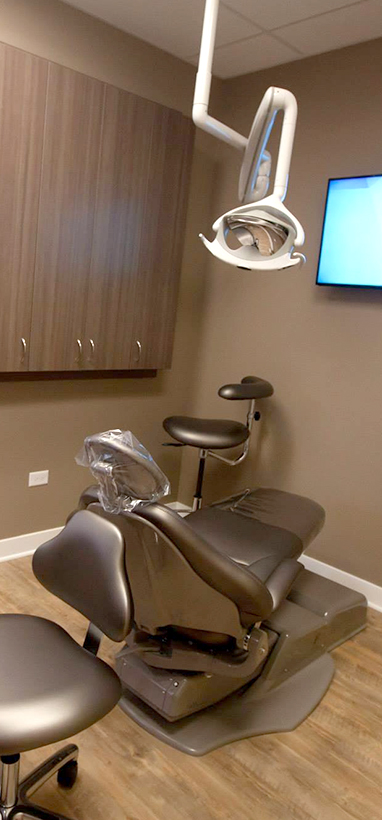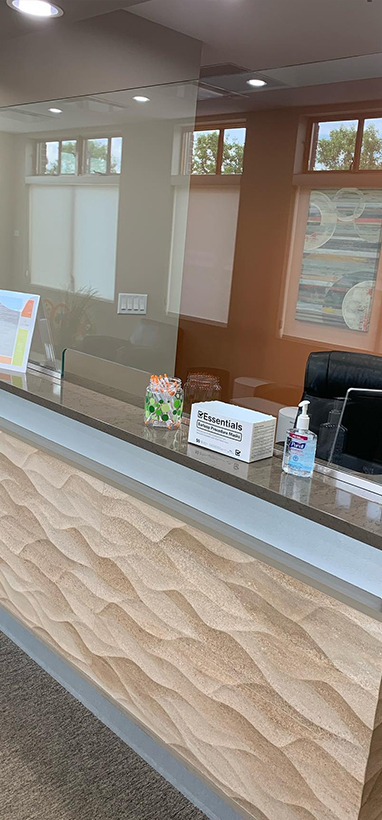1516 Legacy Cir, Naperville, IL 60563
Dental Implant Problems And Solutions

Embarking on the journey to restore your smile with dental implants is undoubtedly a transformative experience. However, like any medical procedure, dental implantation comes with its share of challenges. In this comprehensive guide, we will delve into the various problems that may arise during the dental implant process and offer insightful solutions to ensure your journey is as smooth as possible.
Understanding Dental Implants
Before we cover the potential issues, it’s crucial to grasp the fundamentals of dental implants. These revolutionary devices serve as artificial tooth roots, typically made of titanium, that are surgically positioned into the jawbone beneath the gums. Functioning as sturdy foundations, dental implants support replacement teeth, providing a long-lasting solution to missing teeth.
These prosthetic teeth have become the gold standard for tooth replacement due to their durability, functionality, and natural appearance. The process involves a surgical procedure that aims for osseointegration, the fusion of the implant with the jawbone, to create a stable and secure foundation for prosthetic teeth.
Common Problems Encountered
Now, let’s explore some of the common problems that individuals may encounter during or after the dental implant process.
Osseointegration Delays
Osseointegration is a critical phase in the dental implant journey. However, delays in this process can occur, leading to setbacks in the overall treatment timeline. Factors contributing to delayed osseointegration include poor bone quality, systemic health issues, or the use of certain medications.
To address this issue, a thorough preoperative assessment is imperative. Advanced imaging techniques, such as cone-beam computed tomography (CBCT), can help evaluate bone quality and identify potential challenges before the surgery. Additionally, adopting a healthy lifestyle pre-surgery, including a balanced diet and smoking cessation, can contribute to optimal bone health and support successful osseointegration.
Infection Risks
Infections are potential complications following dental implant surgery. Maintaining excellent oral hygiene is paramount in preventing infections, but sometimes bacterial infiltration may occur, resulting in inflammation and discomfort.
Postoperative care plays a crucial role in preventing infections. Patients must adhere strictly to prescribed oral hygiene practices, including regular brushing, flossing, and antimicrobial mouth rinses. Furthermore, following up with scheduled appointments allows the dental professional to monitor the healing process closely and address any signs of infection promptly.
Implant Failure
While implant failure is relatively rare, it can happen for various reasons. Factors contributing to implant failure include improper placement, inadequate bone support, or even allergic reactions to the materials used in the implant.
To mitigate the risk of implant failure, the selection of a skilled and experienced oral surgeon is paramount. Thorough diagnostic planning, including 3D imaging to assess bone density and quality, aids in precise implant placement. Regular follow-up appointments enable early detection of potential issues, allowing for timely intervention and increasing the chances of implant success.
Nerve Or Tissue Damage
In some cases, nearby nerves or soft tissues may sustain damage during the implantation procedure, leading to pain, numbness, or tingling sensations. While this is a rare occurrence, it highlights the importance of surgical precision and expertise.
To manage the risk of nerve and tissue damage, it is essential for the oral surgeon to prioritize patient safety during the procedure. This includes a thorough understanding of the patient’s anatomy, employing advanced surgical techniques, and utilizing technologies that minimize the risk of complications.
Solutions To Navigate Challenges
Having discussed the potential challenges associated with dental implants, let’s delve into actionable solutions to navigate these hurdles successfully.
Enhancing Osseointegration
To facilitate optimal osseointegration, it’s crucial to address potential challenges before the surgery. This involves a comprehensive evaluation of the patient’s overall health and lifestyle factors that may impact bone quality.
In cases where bone quality is a concern, the dentist Naperville may recommend bone grafting procedures to enhance the implant’s stability and promote successful osseointegration. Additionally, patients can play an active role in their own success by adopting preoperative lifestyle changes, such as maintaining a well-balanced diet rich in essential nutrients and refraining from activities like smoking that can compromise bone health.
Preventing Infections
Infection prevention is a collaborative effort between the dental professional and the patient. While the oral surgeon must maintain strict sterile protocols during the implant surgery, the patient’s commitment to postoperative care is equally crucial.
To prevent infections, patients should adhere diligently to the prescribed oral hygiene regimen. This includes regular brushing and flossing around the implant site and incorporating antimicrobial mouth rinses as recommended. Additionally, any signs of infection, such as persistent swelling or pain, should be promptly reported to the dental professional for assessment and intervention.
Mitigating Implant Failure
Implant failure can be a distressing outcome, but proactive measures can significantly reduce the risk. The key lies in meticulous planning, precise placement, and vigilant postoperative monitoring.
Choosing a qualified and experienced oral surgeon is the first step in mitigating the risk of implant failure. Through advanced diagnostic tools like 3D imaging, the surgeon can assess the patient’s unique anatomical features and plan the implant placement with precision. Regular follow-up appointments allow for the early detection of any issues, enabling timely intervention to salvage the implant and ensure a successful outcome.
Managing Nerve And Tissue Concerns
The risk of nerve or tissue damage during dental implant surgery underscores the importance of surgical expertise and advanced techniques. Oral surgeons must prioritize patient safety and employ strategies to minimize the potential for complications.
Utilizing technologies like computer-guided implant placement enhances the precision of the procedure, reducing the risk of inadvertent damage to nearby nerves or soft tissues. Additionally, a thorough understanding of the patient’s anatomy, gained through comprehensive preoperative assessments, allows the surgeon to navigate potential challenges with confidence.
Embarking on the journey of dental implantation is a significant step toward reclaiming a confident and functional smile. While challenges may arise, armed with knowledge and proactive strategies, individuals can navigate these hurdles successfully. From addressing osseointegration delays to preventing infections and mitigating implant failure risks, a collaborative effort between the patient and the oral surgeon ensures a more seamless and satisfying dental implant experience.
If you are considering dental implants, empower yourself with information and ask pertinent questions. Consult with a dentist to pave the way for a radiant and confident smile that stands the test of time.
FAQs On Dental Implants
Q1. Can Anyone Get Dental Implants, Or Are There Restrictions?
Ans: While most individuals can undergo dental implant surgery, factors like overall health, bone density, and lifestyle habits may influence eligibility. A thorough assessment by a dental professional is crucial.
Q2. Are dental implants noticeable, or do they look natural?
Ans: Dental implants are designed to replicate the look and feel of natural teeth. The crowns are custom-made to match your existing teeth, ensuring a seamless and natural appearance.
Q3. How long is the recovery period after dental implant surgery?
Ans: Recovery times vary, but most patients can resume normal activities within a few days. Complete healing, including osseointegration, typically takes a few months, ensuring a sturdy foundation for the implant.
Q4. Can dental implants be used to replace multiple missing teeth?
Ans: Yes, dental implants can support various prosthetic options, including implant-supported bridges and dentures. This provides a stable and durable solution for replacing multiple missing teeth.
Q5. Is there an age limit for getting dental implants?
Ans: There’s no strict age limit for dental implants. Eligibility depends on overall health and bone density. Older adults can successfully undergo the procedure with proper assessment and care.










